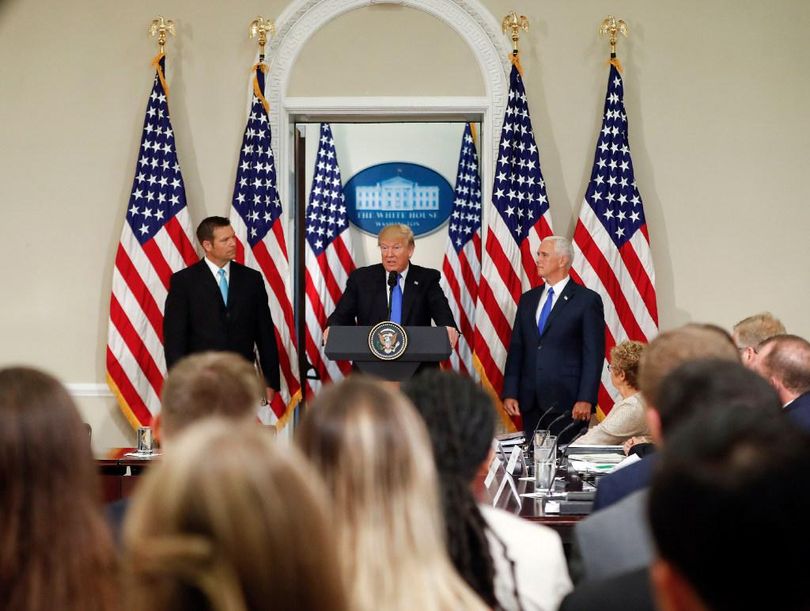Dems won’t re-file lawsuit, but still want Idaho voter data withheld from Trump panel

Here's my full story from spokesman.com:
By Betsy Z. Russell
BOISE – The Idaho Democratic Party has decided not to re-file its lawsuit seeking to block Secretary of State Lawerence Denney from releasing voter data to President Trump’s election integrity commission, but the Dems still are calling on Denney not to comply with the request.
Denney said if no legal action prevents him from doing so, he plans to send the commission the standard request form for public information from Idaho’s voter roll, along with a bill for $20, the standard fee. “If we do get that, I think we have to comply,” Denney said.
Shelby Scott, spokeswoman for the Idaho Democratic Party, said a federal court ruling undercut the party’s main legal arguments, that the commission’s request would expose Idahoans to possible identity theft or commercial exploitation by putting their personally identifiable information into a publicly available federal database.
The commission told the federal court it would “de-identify any such data prior to any public release,” meaning personal identifying information wouldn’t be released to the public. And a second letter that it sent out to states removed the part about publicly releasing the data. Instead, Kris Kobach, the Kansas secretary of state who is vice-chair of Trump’s commission, wrote, “I want to assure you that the commission will not publicly release any personally identifiable information regarding any individual voter or any group of voters from the voter registration records you submit. Individuals’ voter registration records will be kept confidential and secure.”
Denney said that alleviated most of his concerns, though he remains leery about how the data will be used.
Trump launched the commission to investigate voter fraud, after claiming without evidence that millions voted illegally in the 2016 election, in which he lost the popular vote but won in the electoral college.
The requests to all 50 states for voter information, including names, birthdates, voting history and more, drew major pushback from most states. Denney’s office was besieged with calls and emails from Idahoans asking him not to send their personal information to the federal commission.
In Idaho, the voter roll includes a voter’s name, mailing address, county, gender, age (not birthdate), telephone number if provided, party affiliation if declared, and in which year’s elections the voter cast a ballot, dating back to 2006. It doesn’t include birthdates, partial Social Security numbers or other data the Trump commission requested.
The Democratic Party filed suit seeking to block the release of any information, but instead reached a settlement with Denney and the state, promising that no information would be sent without 10 days notice, allowing time for the party to re-file its lawsuit if it chose.
The Washington, D.C. federal court ruling last week “kind of blunted our arguments that the information was going to be available for commercial use,” Scott said. “So we’re just urging Idahoans to reach out to him and let him know they don’t want any of their information going into a federal database. Now it’s really up to public pressure to force him to choose not to comply with it.”
The Democrats maintained that Denney has no legal duty to comply with the request. But he said Tuesday that if he receives the request on the proper form along with payment of the fee, he has a legal duty to comply. Basic public information in the state voter roll is routinely requested each election cycle by candidates, political parties, researchers and more.
“We hand out over 200 every election cycle,” Denney said, “so it is pretty public already.”
Last week, Denney blasted the Democrats and charged that their lawsuit was “frivolous.” Party Chairman Bert Marley complained about that Tuesday, saying, “It is bizarre that Secretary Denney would call our lawsuit frivolous and baseless after his attorneys approached us seeking a settlement and then gave us exactly what we wanted. I expect our state’s top election official to be more honest than that.”
Trump contends he wants to investigate election fraud, though studies and state officials of both parties have found no evidence of widespread voting fraud.
The group that filed the federal lawsuit, the Electronic Privacy Information Center, has filed notice that it plans to appeal, and several other lawsuits also are pending against the Trump commission.
